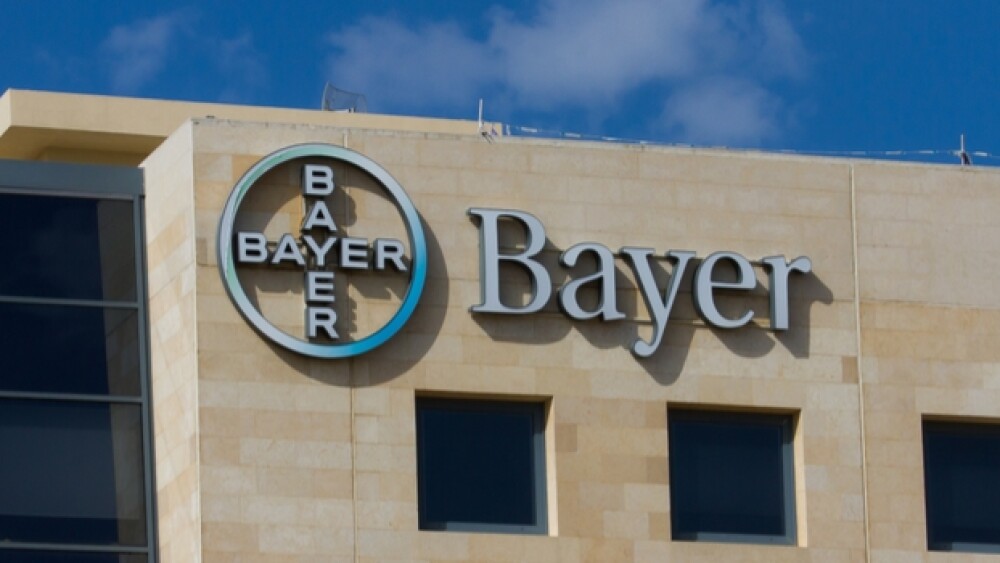Under the terms of the acquisition, Bayer is buying the rest of the company for $240 million up front with an additional $360 million in various development milestones. This will correspond with the company’s value of about $1 billion.
photobyphm / Shutterstock
Bayer has announced it is acquiring BlueRock Therapeutics. Bayer was part of the 2016 joint venture with Versant Ventures to found BlueRock, which was launched with a $225 million Series A financing round.
Bayer already holds a 40.8% stake in BlueRock. Under the terms of the acquisition, Bayer is buying the rest of the company for $240 million up front with an additional $360 million in various development milestones. This will correspond with the company’s value of about $1 billion.
“This acquisition marks a major milestone on our path towards a leading position in cell therapy,” stated Stefan Oelrich, member of the Board of Management, Bayer, and president of the Pharmaceuticals Division. “In line with our strategy to ramp up our investments in technologies with breakthrough innovation potential, we have decided to build our cell therapy pipeline based on BlueRock Therapeutics’ industry-leading iPSC platform. Ultimately, we are joining forces to deliver new treatment options for medical needs that are still unmet today.”
BlueRock is focused on developing induced pluripotent stem cells (iPSC). The company’s most advanced program is for Parkinson’s disease, which it expects to enter into the clinic in the U.S. by the end of this year. It is also working on other indications in neurology, cardiology and immunology.
This deal reinforces Bayer’s interest in iPSC research. In April, Leaps by Bayer, the company’s investment arm, teamed with Khloris Biosciences to develop novel, first-in-class anti-cancer vaccines based on human iPSCs. The idea is that because human iPSCs have a genetic match to the recipient, but can’t replicate, they can be used as vaccines by modifying them and injecting them into the patient, where it will activate the immune system to attack the cancer.
In July, Bayer invested in Century Therapeutics, another Versant Ventures-founded company. Century is using iPSCs to develop allogeneic or off-the-shelf immune cell cancer therapies. Bayer invested $215 million of the $250 million financing commitment to the company, along with Versant and Fujifilm Cellular Dynamics. Versant founded Century in 2018, which later that year formed a strategic partnership with FCDI, a subsidiary of Fujifilm Corporation.
Of the BlueRock acquisition, Kemal Malik, Bayer board member for Innovation, stated, “This transaction is not only the foundation for an iPSC-based cell therapy portfolio, but also a manifestation of a successful innovation strategy by our Leaps unit to create biotechnological solutions that have truly transformative potential and may cure patients in life-threatening conditions one day.”
Bayer will own full rights to BlueRock’s CELL+GENE platform, as well as its intellectual property portfolio and the related technology platform. This includes is proprietary iPSC technology, gene engineering and cell differentiation abilities. BlueRock is expected to stay an independent company “operating on an arm’s-length basis,” in order to preserve its entrepreneurial culture.
Leaps by Bayer is Bayer’s investment arm, but also has a particular focus on cancer. Investments have included Casebia Therapeutics, BlueRock, Joyn Bio, Khloris, Century, and Pyxis. Casebia is using CRISPR gene editing to focus on genetic disorders, Joyn is focused on probiotics for agricultural usage, and Pyxis is developing antibodies for immuno-oncology targets.






